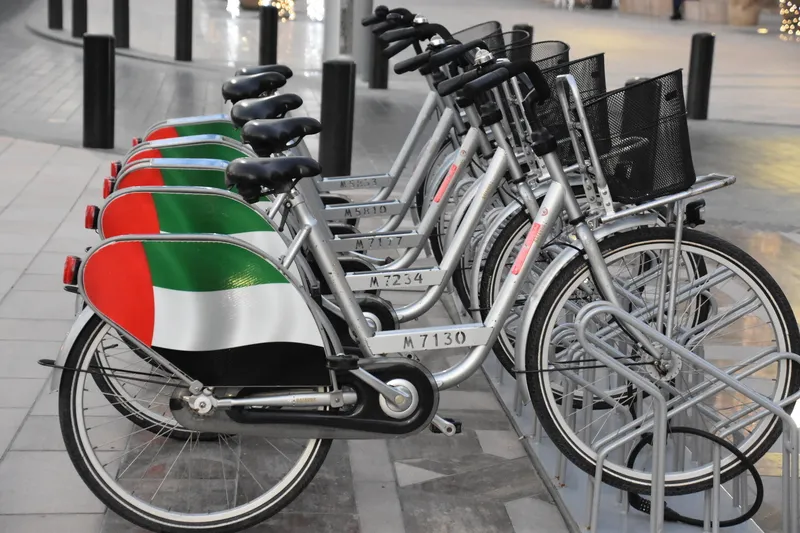A team of IBM experts assigned to Nairobi have provided a framework and roadmap to the city to improve the flow of road traffic and increase revenues from the transportation sector. The recommendations complement Nairobi's considerable on-going investment in underlying roadway infrastructure and include making traffic information more readily available to citizens, motorists, police, policymakers and planners so that better transportation decisions can be made in the near and long term.
May 14, 2012
Read time: 2 mins
A team of 62 IBM experts assigned to Nairobi have provided a framework and roadmap to the city to improve the flow of road traffic and increase revenues from the transportation sector. The recommendations complement Nairobi's considerable on-going investment in underlying roadway infrastructure and include making traffic information more readily available to citizens, motorists, police, policymakers and planners so that better transportation decisions can be made in the near and long term.
The blueprint also includes suggestions for using available technologies, including mobile phones, sensors and closed-circuit television, to more automatically pinpoint traffic issues. In the recommended plan, parking and licensing would also be digitised and automated - streamlining bureaucratic processes and increasing citizen satisfaction. In addition, the plan prescribes enhanced collaboration between various transport bodies.
The IBM team studied Nairobi's transportation system as part of an IBM Smarter Cities Challenge grant valued at Sh33 million (US$400,000), announced in March of this year.
"A city is a system of systems. One key finding of the study is that technology could provide a relatively simple way of bringing together existing systems to streamline the city's transport sector and increase revenues for the government," said Tony Mwai, country general manager, IBM East Africa.
Despite impressive investments in building road networks, inefficiencies within the city's transport sector cost Nairobi an estimated Sh50 million per day, negating revenues and commercial benefits from otherwise significant road infrastructure, and limiting the region's economic growth.
"The government has made immense investments in infrastructure over the last 10 years but we are challenged by the fact that many departments within government are working in isolation and not collaborating," said Dr. Bitange Ndemo, permanent secretary in the5529 Kenyan Ministry of Information and Communications.
"We will review these recommendations made by the IBM team with a view to fast-tracking them to help maintain Nairobi's position as a key regional economic hub," Dr. Ndemo said.
The team's findings follow the recent launch of an IBM research report titled "A Vision of a Smarter City: How Nairobi Can Lead the Way into a Prosperous and Sustainable Future," which highlights transportation, energy and public safety as three critical areas that the city must address in order to boost its economic competitiveness.
The blueprint also includes suggestions for using available technologies, including mobile phones, sensors and closed-circuit television, to more automatically pinpoint traffic issues. In the recommended plan, parking and licensing would also be digitised and automated - streamlining bureaucratic processes and increasing citizen satisfaction. In addition, the plan prescribes enhanced collaboration between various transport bodies.
The IBM team studied Nairobi's transportation system as part of an IBM Smarter Cities Challenge grant valued at Sh33 million (US$400,000), announced in March of this year.
"A city is a system of systems. One key finding of the study is that technology could provide a relatively simple way of bringing together existing systems to streamline the city's transport sector and increase revenues for the government," said Tony Mwai, country general manager, IBM East Africa.
Despite impressive investments in building road networks, inefficiencies within the city's transport sector cost Nairobi an estimated Sh50 million per day, negating revenues and commercial benefits from otherwise significant road infrastructure, and limiting the region's economic growth.
"The government has made immense investments in infrastructure over the last 10 years but we are challenged by the fact that many departments within government are working in isolation and not collaborating," said Dr. Bitange Ndemo, permanent secretary in the
"We will review these recommendations made by the IBM team with a view to fast-tracking them to help maintain Nairobi's position as a key regional economic hub," Dr. Ndemo said.
The team's findings follow the recent launch of an IBM research report titled "A Vision of a Smarter City: How Nairobi Can Lead the Way into a Prosperous and Sustainable Future," which highlights transportation, energy and public safety as three critical areas that the city must address in order to boost its economic competitiveness.









